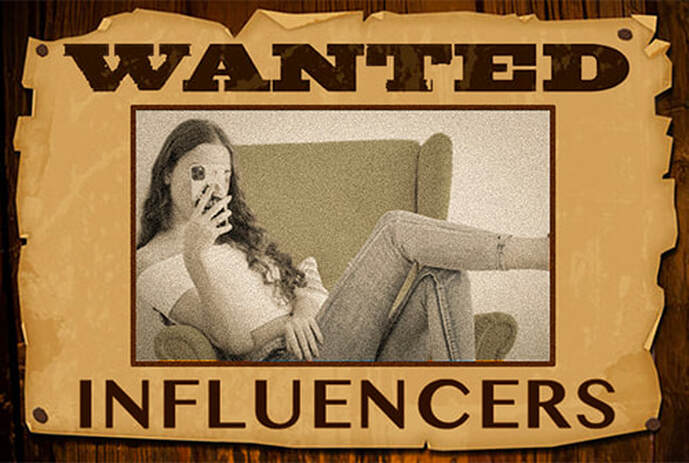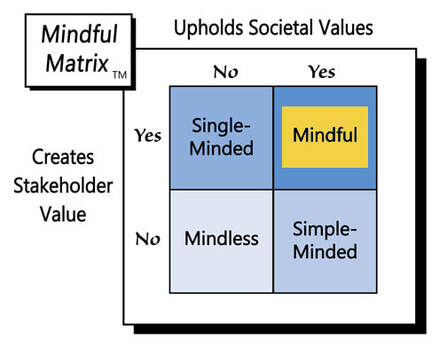author of Honorable Influence - founder of Mindful Marketing
The great expansion of spokespeople hit home for me a few months ago during a discussion about personal branding in our university's capstone marketing course. As we considered the notion that those present might be future endorsers, a student in the front row spoke up, “Do you know Rachel Delate? She’s already endorsing products.” A classmate quickly added, “Yeah, she has a deal with Body Armor.”
A year earlier, Rachel was in my intro to marketing class where she distinguished herself as a strong student. She’s also a very good lacrosse player, e.g., first team All-Conference, first team All-Region, third team All-American. After the NCAA’s recent relaxation of rules involving name, image, and likeness (NIL), that talent put her in a position to accept endorsement deals.
Besides Body Armor, Rachel also has enjoyed sponsorship experiences with TreadBands, Barstool Sports, and LiquidIV, which have provided her with a variety of branded gear. She says the experiences have been very worthwhile, as she summarizes in a sentence, “I’ve had the opportunity to connect with awesome brands and people and receive cool stuff!”
Knowing Rachel, I’m confident she’s a responsible influencer, but what about many others who have suddenly become spokespeople and might be looking to make quick money, not caring much about what they’re selling or to whom. How should they see their roles? But first, how did we get to this point of influencer inundation?
The rapid rise in number of endorsers has been the result of a perfect storm of at least three interwoven social trends and economic incentives.
First, over the last several years, new ecommerce platforms and tools have made it relatively easy and inexpensive to operate online shops, which has encouraged many people to start, run, and promote their own businesses.
Second, there’s been a steady increase in influencer marketing due mainly to the seismic shift from traditional media to social media. Advertisers have always needed to be where consumers are, which has recently meant firms moving money from the likes of NBC and the New York Times to an up-and-coming influencers’ TikTok and YouTube channels.
Third, crypto currencies and NFTs, two new categories of virtual products that were virtually unknown a few years ago, have offered an array of endorsement opportunities not only because they’re new but because many people still don’t know exactly what they are and, therefore, lean on endorsers to guide them.
It’s this third trend that recently grabbed product endorsement-related headlines, but not for good reasons:
- Bloomberg described “the disastrous record of celebrity crypto endorsements,” such as that of actor Matt Damon who plugged cryptocurrency exchange Crypto.com, only to see Bitcoin’s price plummet by 60%.
- BuzzFeed News reported that the watchdog group Truth in Advertising warned Jimmy Fallon, Gwyneth Paltrow, and fifteen other celebrities that they violated Federal Trade Commission guidelines by failing to disclose on social media their money-making connections to certain NFTs.
The proliferation of new and experienced influencers playing fast and loose with their referral power, makes me wonder: Have we entered the Wild West of product pitching where laws are lacking and consumers must take their protection into their own hands?
Hopefully, most influencers will have the conviction to self-regulate. For those who are so morally and professionally inclined, here are four best practices for product endorsement:
1. Know the product: An endorsement is basically a recommendation. People want recommendations because there’s something they don’t know well, and they’d like someone who’s more knowledgeable to guide them.
For that reason, every endorser should be very familiar with the product and/or company they’re recommending; otherwise, they’ll fail to offer value or worse, they might mislead the people who are trusting them for help.
2. Believe in the product: Although information is very important, head knowledge is only half the product-endorsement equation. Spokespeople should also believe in the merits of what they advocate.
Several years ago, a reporter asked basketball great LeBron James how he had improved his game and physique over the off-season. James unwittingly replied that he stopped eating at McDonalds, which was one of his main sponsors at the time. James’ slip underscores the fact that knowing about a product is not the same as believing in it. Endorsers shouldn’t recommend to others products they wouldn’t want for themselves.
3. Ensure the product is a good fit for the target market: Notwithstanding the previous point, there are instances in which endorsers don’t use the products they’re recommending because they’re not in the target market. In those cases, it is especially important that influencers understand the needs of those who do use the product.
For example, doctors often prescribe pharmaceuticals they’ve never tried. They can recommend them with confidence, however, because they’ve read the drug studies and believe in the companies that provide them; then, knowing their patients’ medical histories and symptoms, they can project with some certainty that their patients will benefit from them.
4. Disclose your relationship with the organization: From native advertising to salespeople acting as if they’re customers, one of the greatest deceits in business occurs when marketing promotion tries to pretend it’s not.
Advertising and personal selling are useful tools from which consumers can gain very helpful information; however, people need to know when the information source is objective (e.g., a fellow transit rider) versus compensated by a company (e.g., an online product reviewer who receives the items for free). It’s difficult for anyone to be unbiased about an organization that’s paying them, which isn’t necessarily a problem provided consumers know the relationship.
Developments in areas such as deepfake video, the metaverse, and NIL, give reason to be both excited and anxious about the future of marketing influence. Endorsers who see their roles as involving both individual opportunity and social responsibility will likely be promoters of “Mindful Marketing.”
Learn more about the Mindful Matrix.
Check out Mindful Marketing Ads and Vote your Mind!




 RSS Feed
RSS Feed